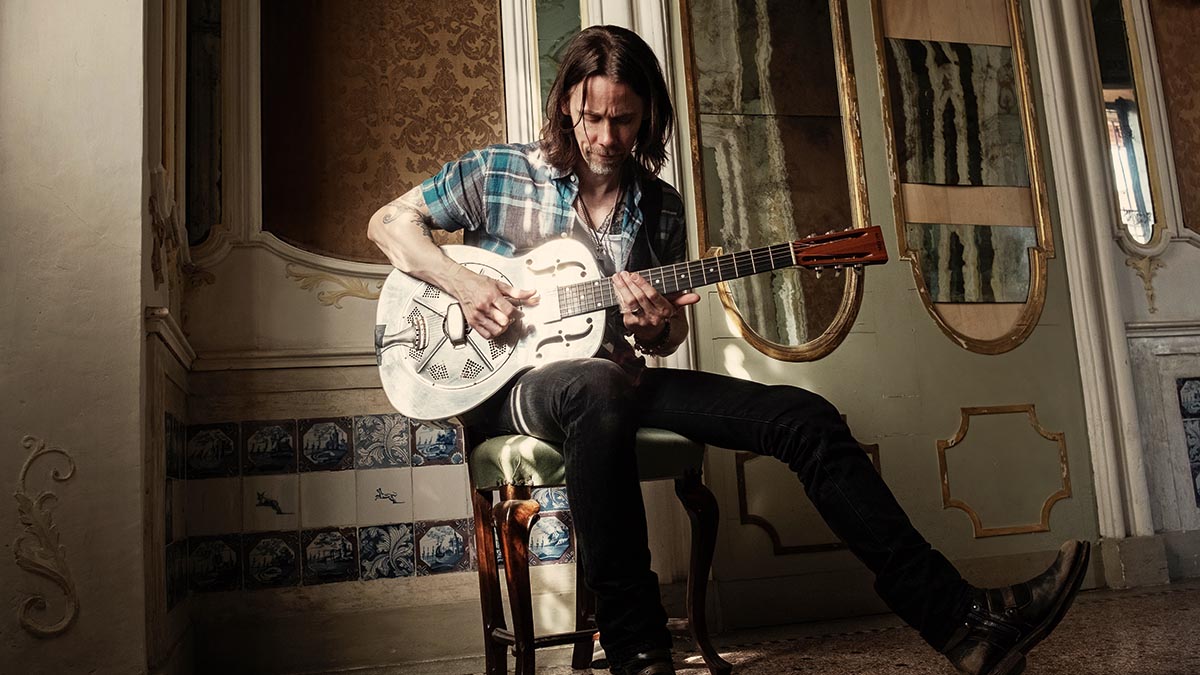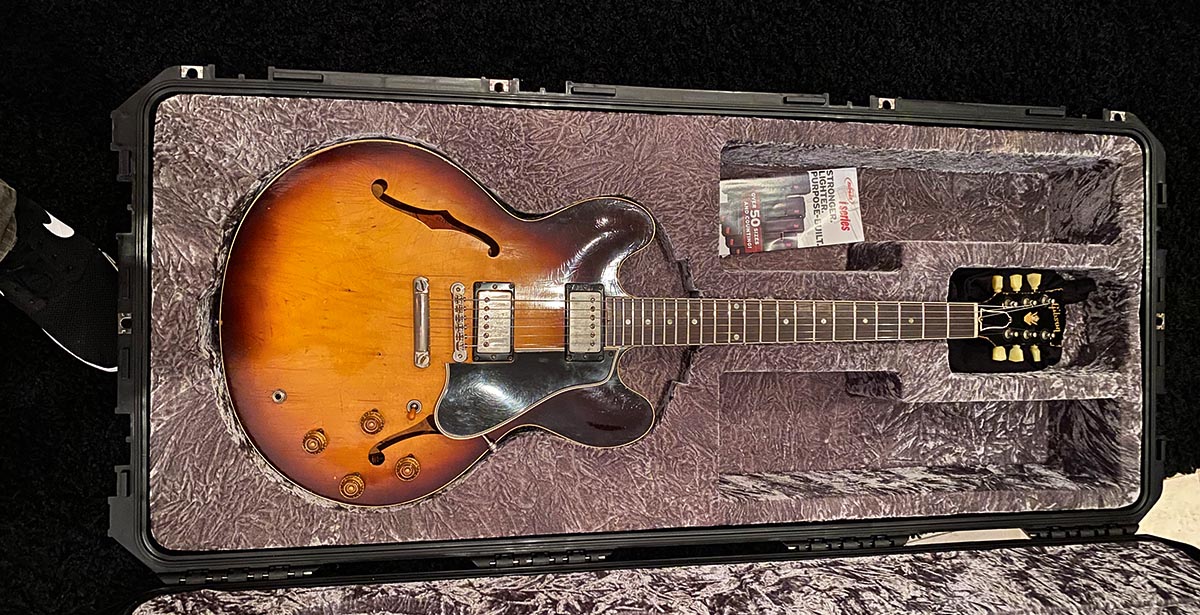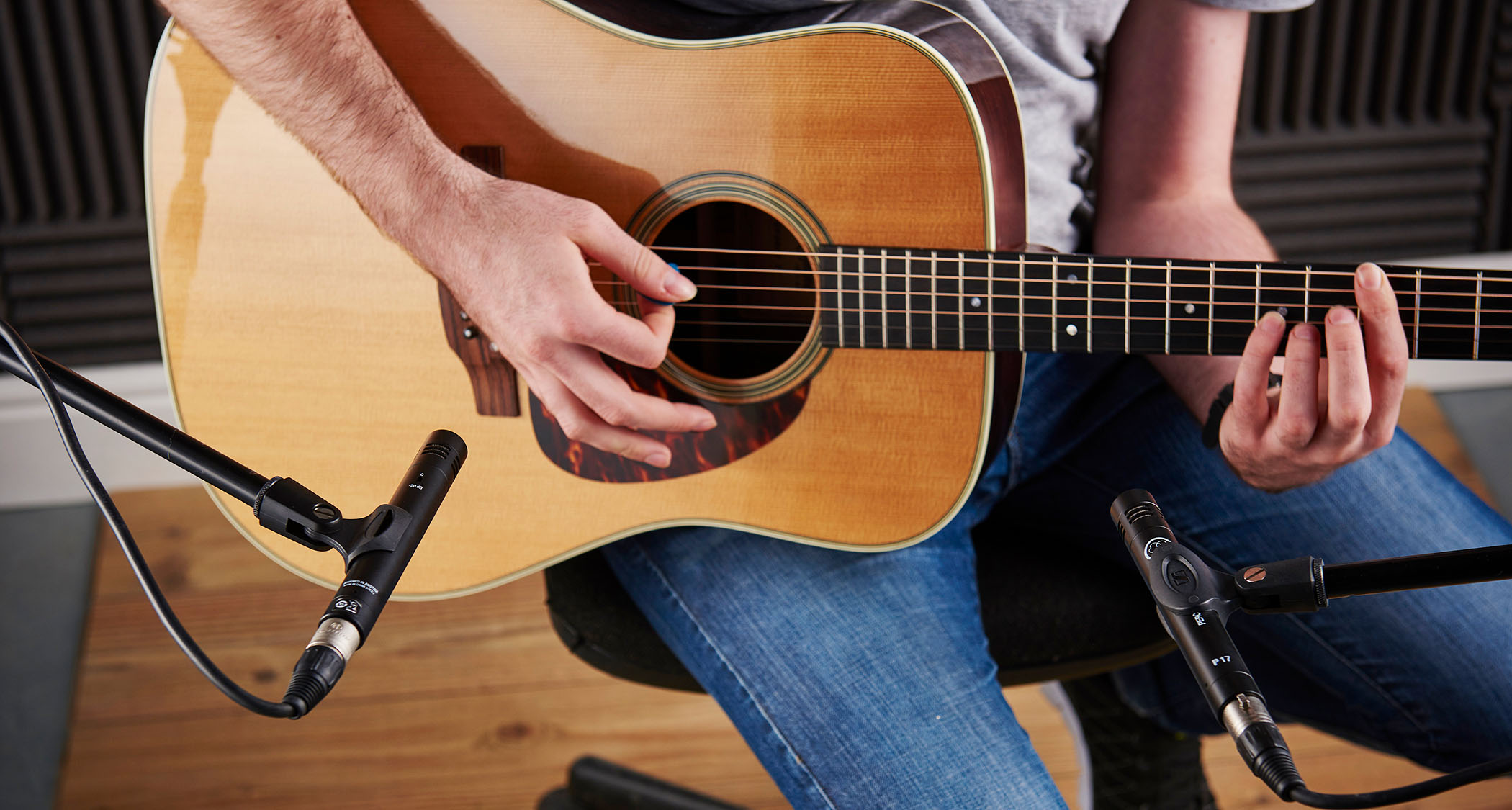Myles Kennedy on his greatest gear finds and regrets, and how a '53 Tele made him fall in love with guitar all over again
The Alter Bridge guitar man and vocalist recounts how sometimes you can strike gold when working in a music store – and there's money in horse manure…

What was the first serious guitar that you bought with your own money?
“It was an Ibanez DT250 – they called them ‘The X-Series’. The story is that we had some horses and I wanted to get an electric guitar and my dad said, ‘Well, I’ll tell you what. I’ll give you a dollar for every stall you clean…’ So I cleared horse manure for nine months, saved up my money, and bought my first electric guitar, which, to this day, when I see that guitar I smell horse manure!
“About three years after I bought it I was playing in the school jazz band, which was funny because this guitar was totally heavy metal and didn’t belong in a jazz setting, but it was all I had. I left it at the school to see a David Lee Roth concert later that night – I wanted to see Steve Vai play guitar – and I got back to school the next day and someone had stolen it. I’ve been on a hunt for a decade trying to find one and I found one. Somebody had taken some liberties with it, but it was still in pretty good shape and I cherish it.”

What was the last guitar you bought and why?
“The last one I bought was actually a T-style called a Tango, made by a luthier over in Tacoma, Washington, named Joe Riggio. I like that guitar a lot. I have a friend that I buy some of my vintage guitars from and he was like, ‘Oh, man, we have this Riggio in and I think it’s the best one we’ve ever had. You should come check it out,’ and I loved it.
“I ended up using it on the new solo record [The Ides Of March] on a few solos. It’s cool because it’s got a compound radius [neck] so it starts at 7.25 inches and goes up to nine or 9.5 inches by the 17th fret. So it’s a cool guitar, sounds amazing.”
I don’t know that I’ve had buyer’s remorse after buying gear. It all makes me so happy
What’s the most incredible find or bargain you’ve ever had when buying guitars?
All the latest guitar news, interviews, lessons, reviews, deals and more, direct to your inbox!
“I worked at a music store back in the early 90s and I was in the consignment centre and so people would bring in used gear. This person brought in a 1960 reissue Les Paul in Bullion Gold and I was like, ‘Well, how much do you want out of this?’ and I think he just wanted about $400 for it. Even back then, I think those guitars were listing for a couple of grand.
“At the time I had no money, so I was like, ‘Uh, okay, if that’s what you want…’ Basically, I took it in the store, I paid the store the commission and I ended up getting the guitar. That was a smokin’ deal, for sure – and I used that guitar a lot throughout the '90s in a number of bands.”
What’s the strongest case of buyer’s remorse you’ve ever had when buying gear?
“I don’t know that I’ve had buyer’s remorse after buying gear. It all makes me so happy. When I bought my first really legit vintage guitar, it was a little more expensive than my Ibanez DT250, let’s just put it that way. I think it was a ’53 Blackguard Fender Tele and that was definitely a commitment – a bit of, ‘Well, you’re jumping off the deep end here,’ and my wife thought I was half crazy.
“But I’m really glad I did it just because it’s brought me so much happiness and it kinda made me want to play again, to be honest with you. I hadn’t really been in love with playing guitar for a long time until I found that instrument. The buyer’s remorse came in when I looked at my bank statement, after the fact!”
I have all these amps, some of which I haven’t even fired up in 20 years... But I just want to be prepared in case I’m feeling fickle and want to use a 1969 Plexi again
Have you ever sold a guitar that you intensely regret letting go?
“I don’t think so because I’ve hardly sold anything. Usually, when I buy something, I’m committed to it. I’m kind of a gear hoarder, so I have a really difficult time parting with anything. I have all these amps, some of which I haven’t even fired up in 20 years and they’re just taking up space. But I just want to be prepared in case I’m feeling fickle and want to use a 1969 Plexi again, who knows?”
What’s your best guitar-buying tip?
“I would definitely do a lot of research. Apps like Reverb are amazing – you can type in whatever guitar it is you’re interested in buying, suss out the prices and all the various components… We live in a different era now where so much of what you buy is online, but if you can play and hear a guitar before you buy it that’s really helpful because every guitar is different.
“You might think you’ve found this mid-'90s PRS or whatever and think that they feel the same and play the same, but it’s not true. Every guitar has its own identity and each piece of wood can vary greatly in terms of the overall tone.”
When was the last time you stopped to stare in a guitar shop window (or browse online) and what were you looking at?
“I have a friend here in Spokane [Washington] where I live and he’s got a shop called River City Guitars. Generally, I don’t window shop, I’ll just walk right in and covet whatever he’s got. In fact, that’s where I bought that Riggio T-style from. He’s got a korina Strat in there, I don’t know what year it is, and it’s a really cool guitar. It’s a pre-CBS one if I recall and that would be cool to have.”
If forced to make a choice, would you rather buy a really good guitar and a cheap amp or a cheap guitar and a really good amp?
“Definitely a really good guitar and a cheap amp. I think that, for me, the guitar has got to be there first. It’s like the first thing in the chain. I want the neck to feel a certain way; I want the tone to have a certain thing. And that’s really where it starts.
“Let’s say you had an old Hondo from the '80s and you plugged it into a Dumble amp. I’m sure it would still sound good because those amps are amazing. But as far as what’s going to inspire me, it’s the way the guitar feels and so I’d really rather have a guitar that feels really good and then we’ll figure out how we’re going to massage the amp once we get to that point in the chain.”
Myles' go-to rig
“With Alter Bridge, it’s PRS guitars, sometimes Fender Teles, into either a Diezel Herbert or VH4. They’re awesome, I love them in that context. The solo realm I’m still getting figured out for the next few tours, but it’ll probably be a number of different things. Probably 335s.
“And PRS makes a really good amp right now and I’m going to try that in conjunction with the Diezel Schmidt – that’s the amp they don’t make any more, but it’s a great sound. It’s like a Vox AC30 on steroids and so I’ll probably try a combination of those.”
- The Ides Of March is available now via Napalm Records.
